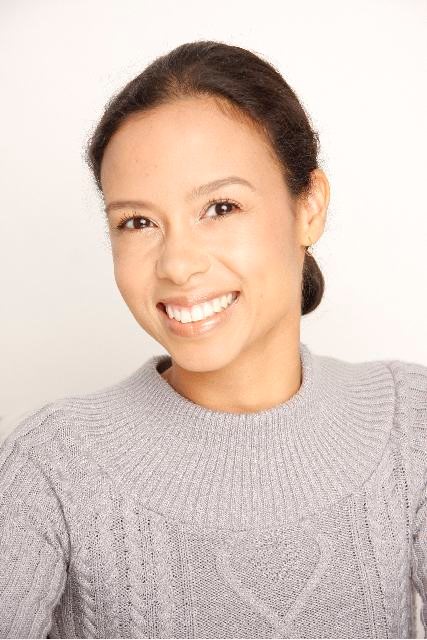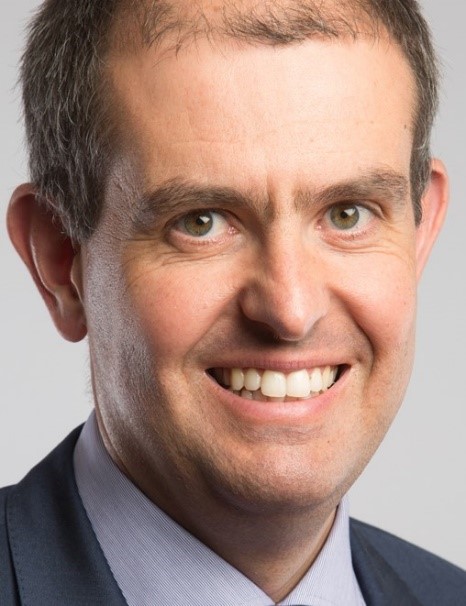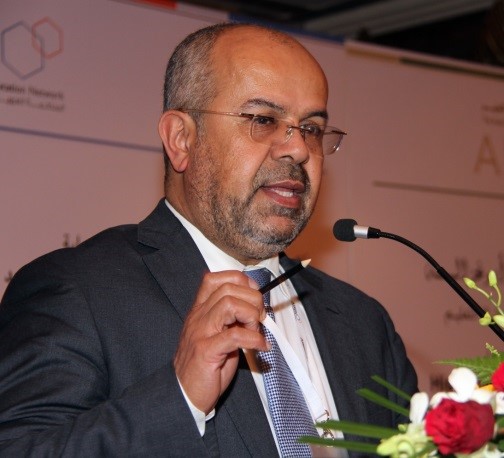
EU-Africa Summit Preview, 8-9 December 2021
The AERAP Africa-Europe Science Collaboration Platform will organise a roundtable discussion on 8-9 December 2021 to consider the contribution of science to the priorities for the EU-Africa summit, currently scheduled for 17-18 February 2022 under the French Council Presidency of the European Union (1 January -30 June 2022). The purpose of the meeting will be to promote awareness of the contribution of collaborative research and development as a critical aspect of EU-Africa relations and collaborations while recognising the context of the United Nations Sustainable Development Goals, which provides a critical narrative. Full Programme here
The general topics that will inform the discussions include:
- The Neighbourhood, Development and International Cooperation Instrument, NDICI, also known as Global Europe, needs to reflect the enormous potential of collaborative and inclusive science to address the policy objectives addressed by the instrument, including digital transition and the Green deal; the Communication from the Commission on the Global Approach to Research and Innovation is a key paper: the Communication is intended to ….serve as a guide in implementing the international dimension of the new EU programme for civil research and innovation, Horizon Europe, and its synergies with other EU programmes, in particular the Neighbourhood, Development and International Cooperation Instrument – Global Europe. For example, the Communication does not address the impact of the EU’s General Data Protection Regulation (GDPR), which has extraterritorial application and its implications for research collaboration, particularly in medical science and health research.
- Accelerate an inclusive approach to collaborative research, recognising Africa leadership and the untapped potential of women and girls to contribute to science and innovation. This needs to start with a more cohesive approach to policymaking and regulation.
- Consider how to leveraged synergies between funding mechanisms led by the EU and development finance provided by the African Development Bank, the European Investment Bank, the World Bank and others;
- Raise awareness of the unforeseen and unintended impact of EU regulations on potential research collaborations. These include data privacy, the General Data Protection Regulation, the In-vitro Diagnostics Regulation (IVDR), the Medical Devices Regulation (MDR) and the Clinical Trials Regulation. Good regulation cannot act as a barrier between you and African researchers. African nations need to build their enabling regulatory environment and pursue regulatory compliance with the EU. There is also an urgent need to create an enabling environment for trust relationships;
- Indigenous knowledge needs to be recognised as a force for good and part equation when promoting Africa-Europe science collaboration, including developing relevant information services and linking indigenous knowledge to data capacities; patent data and WTO TRIPS Art. 66.2 is key also;
- We will also consider the importance of the SDGs in this context, including enabling local and community (Local 2030) science and efficacy part of the global response.
Ministers of Foreign Affairs of the Member States of the African Union (AU) and the European Union (EU) met in Kigali, Rwanda, on 26 October 2021, took stock of progress regarding the priority areas adopted during the last AU – EU Summit held in 2017, in Abidjan. The Communique provides some guidance on priorities for the EU-AU Summit on 17-18 Feb 2022.
AERAP is a response to the European Parliament Written Declaration 45 on Science Capacity Building in Africa. This call was repeated by the Heads of State of the African Union through their Decision Assembly/AU/Dec.407 CXVIII. AERAP encourages policymakers to understand the need for an enabling policy and regulatory environment for science cooperation with Africa and championing leadership in Africa and Europe to demonstrate science’s contribution to society and address shared global challenges.
Communication from the Commission on the Global Approach to Research and Innovation
Speakers
-
 Bonita de SwardtManager of Strategic Partnerships for Human Capital Development (South African Radio Astronomy Observatory)
Bonita de SwardtManager of Strategic Partnerships for Human Capital Development (South African Radio Astronomy Observatory)Dr Bonita de Swardt carried out her initial training in astronomy at Rutgers University in the US. She completed her PhD in 2009 working on science commissioning data of nearby dwarf galaxies observed with the 11m Southern African Large Telescope (SALT) in Sutherland, South Africa. After completion of her PhD, she continued her research of studying the properties of nearby dwarf systems using SALT and various infrared observing facilities, which formed part of her postdoctoral fellowship at the South African Astronomical Observatory (SAAO).
Bonita has always been passionate about developing human capacity in astronomy in South Africa. Her interest in human capacity development in astronomy was sparked while taking up a part-time role of coordinator for the National Astrophysics and Space Science Programme (NASSP) during her postdoc. Following her postdoc, she was employed by the Department of Science & Technology (DST) under the Astronomy Desk in 2012. At the time, the Astronomy Desk was tasked with providing strategic advice and input to the Minister of Science & Technology, Ms Naledi Pandor, to inform astronomy governance and policy decisions within the South African context.
Bonita joined the SKA South Africa – now known as the South African Radio Astronomy Observatory (SARAO) – under its Human Capacity Development (HCD) division in 2014. She has developed and oversees a number of new strategic capacity development interventions that have been formally introduced into SARAO. This includes the SARAO graduate internship programme for science and engineering teams, running of workshops and schools in critical skills areas within radio astronomy and related areas, international student exchanges, managing international partnerships in developing the necessary skills and capacity in radio astronomy in the SKA Africa partner countries, amongst other areas.
-
 Daan du ToitDeputy Director-General: International Cooperation and Resources
Daan du ToitDeputy Director-General: International Cooperation and ResourcesDaan du Toit started his career in the South African Government with the then Department of Foreign Affairs where he trained as a diplomat. Since 2002 he has been attached to the Department of Science and Innovation, where he has notably served as the Department’s representative in Europe, based in Brussels. In 2014 he was appointed as Deputy Director-General responsible for the portfolio International Cooperation and Resources.
Over the years Daan had the privilege to contribute to multiple initiatives in support of a diverse and rich international partnership portfolio for South African science, technology and innovation. He for example played a central role in the establishment and management of the European-South African Science and Technology Advancement Programme (ESASTAP.)
Daan has represented South Africa in diverse multilateral forums such as the OECD’s Global Science Forum, the Group on Earth Observations and the BRICS partnership, as well as in various structures related to African regional and continental cooperation of the African Union and the South African Development Community.
In addition to being a member of the Department of Science and Innovation’s Executive, Daan currently chairs the Strategy and Business Development Committee of the Square Kilometer Array (SKA) global radio telescope project.
-
 Declan KirraneDirector ISC Intelligence in Science and Coordinator EU Africa Radio Astronomy Platform
Declan KirraneDirector ISC Intelligence in Science and Coordinator EU Africa Radio Astronomy PlatformDeclan Kirrane is Managing Director of ISC Intelligence in Science, a specialized science, technology and R&D public affairs firm based in Brussels, Belgium. ISC develops and implements Strategic Research Agendas for science and technology-based organisations in the EU and US.
His practice areas cover IP, R&D consortia development, management and dissemination and is responsible for themes of ICT, health, security, defence, space and related policies, legislation, programmes and funding mechanisms. Declan Kirrane has a background in analysing the relationship between public and private R&D funding and the impact on R&D performance: he has worked extensively on science and technology policy evaluation methodologies and technology options for policy- and decision-makers. The EU’s Digital Agenda, emerging European space, security and defence policies are part of his remit. -
 Yousef TormanManaging Director, Arab States Research and Education Network - ASREN
Yousef TormanManaging Director, Arab States Research and Education Network - ASRENFor the last thirty years, Yousef Torman has been working in ICT at highly reputable institutions in the higher education and scientific research sector. During his work, his main focus was to make use of technology, mainly ICT, for the developments and enhancing the life of people in his community and beyond.
In 1989, he started his work as Engineer at the Computer Center of Jordan University for Science and Technology, and then he had successfully established and managed the New Computer and Information Center at Jordan University of Science and Technology in 1999 (serving around 16000 students, 3500 faculty and staff members), then, in 2005, and at the national level, he established and managed the Jordanian National Research and Education Network (serving 11 Universities with more than 250000 students and 25000 faculty and staff members). After that, in 2012, and at the regional, he played a prominent and key role in the efforts and initiatives that aim to establish a Pan Arab regional e-Infrastructure for education scientific research for more than 5 years. These efforts were concluded by the establishment of the Arab States Research and Education Network – ASREN – for which he’s currently the Managing Director (hoping to serve hundreds of Universities in the Arab Region).
